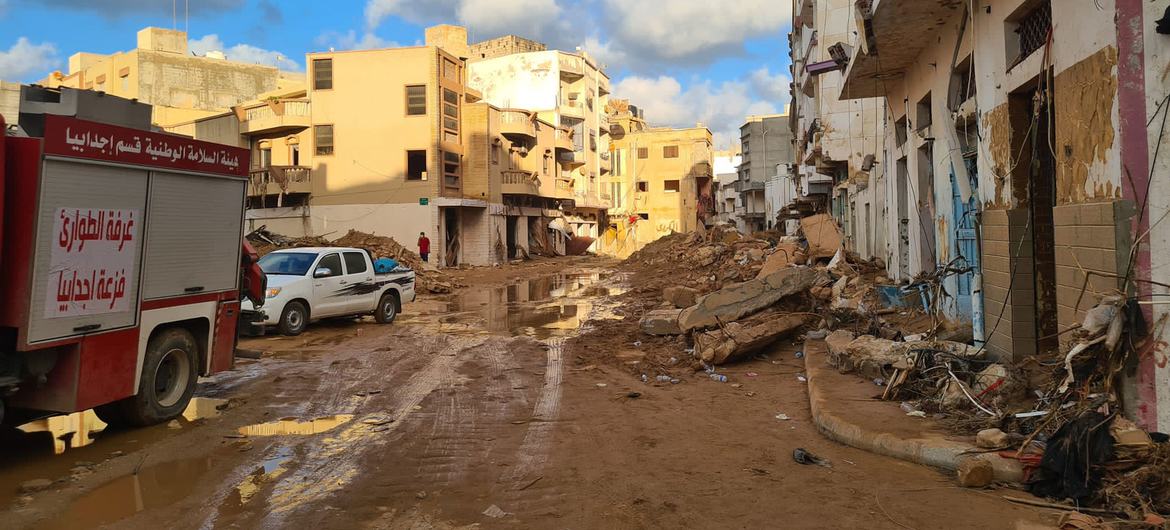
UNITED NATIONS, Oct 6 (NNN-XINHUA) — Among the 42,000 survivors of last month’s catastrophic flash flooding in northeast Libya are people needing health care and mental health care, UN humanitarians said.
The UN Office for the Coordination of Humanitarian Affairs (OCHA) said survivors urgently need shelter, protection, water, sanitation and hygiene supplies, health care and mental health care.
The office said the list of needs follows a new assessment in the affected areas following Storm Daniel’s Sept. 10-11 assault on northeast Libya, resulting in the collapse of two dams and the deadly flash flooding.
“Buildings were severely damaged by the floods in more than a third of the locations assessed by an inter-agency team of more than 10 partners,” OCHA said. “Some 42,000 people are still displaced, according to the International Organization for Migration.”
The office said many people need cash to cover rent and to support shelter repairs. While water supplies are available, they are only sometimes safe or affordable.
The World Health Organization reported that nearly two-thirds of health facilities are either out of service or only partially functioning. More than 100 health workers were killed in the floods.
The UN Children’s Fund said nearly 100 damaged schools remain closed.
OCHA said the United Nations and its humanitarian partners reached more than 125,000 people with relief items and protection services in flood-affected areas.
The office also said that while reliable funding for the humanitarian response is critical, the three-month Libya Flash Appeal, seeking more than 70 million U.S. dollars to help flood survivors, is less than one-third funded.
OCHA also said that over 8.7 million tons of debris from destroyed and damaged buildings require removal in the eastern Libyan city of Derna and other areas in the region.
The floods caused significant damage to housing and building infrastructure across the affected areas in northeastern Libya, the report revealed, adding that health was the most frequently highlighted need besides shelter.
Several schools in Derna remain occupied by IDPs or have been otherwise re-purposed for emergency response, while school principals are working for a swift resumption of education in the schools, added the report.
According to UNICEF, 98 schools in 14 municipalities remain closed due to damage in the floods and additional funding will be required for their rehabilitation.
Derna, which is located about 1,300 km east of Libya’s capital Tripoli, suffered more destruction and casualties than any other city or town in the region, mainly due to the collapse of the city’s two dams during the storm.
On September 25, the attorney general started an investigation into the failure to maintain the two dams, despite allocating sufficient funds for the maintenance. — NNN-XINHUA



